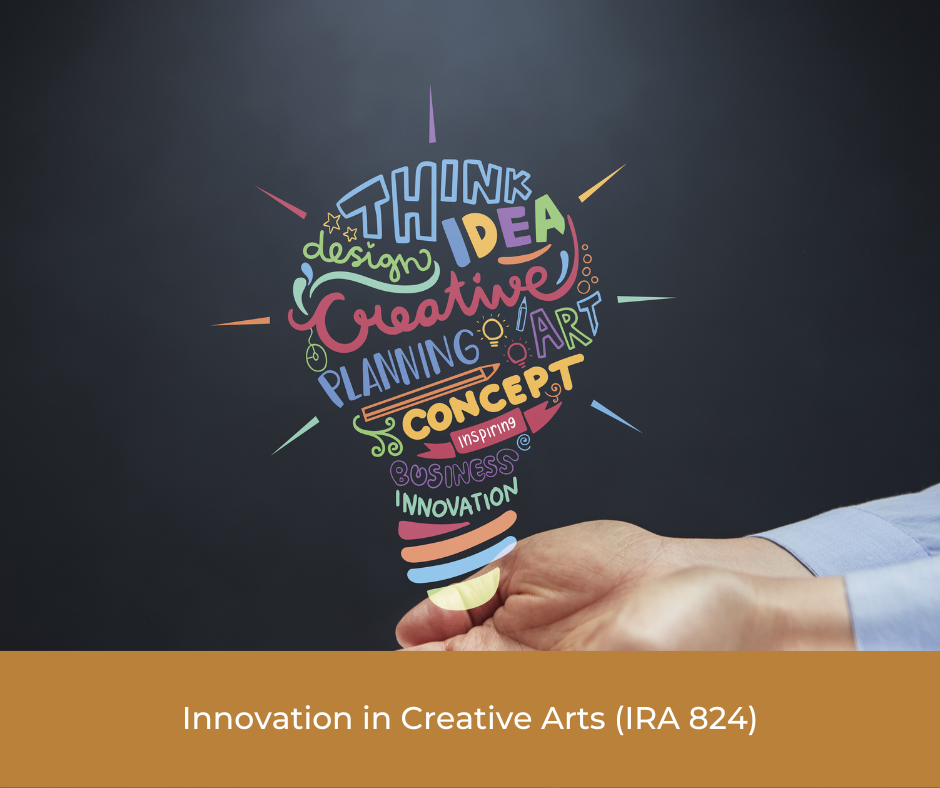Course Description: The Innovation in Creative Arts course delves into the concept of innovation within the realm of creative arts. Students will embark on a journey through the history of creative arts, examining its evolving role in society, and will learn how to foster and apply innovation in their own artistic endeavors. This course is designed to inspire creativity, challenge conventional artistic thinking, and equip students with the tools to become innovators within the world of the creative arts.
Outline of Major Content Areas:
- Historical Perspectives on Creativity and the Arts:
- Exploring the historical significance of creativity and its impact on the arts.
- Studying key moments in art history that marked significant shifts in artistic innovation.
- Creative Processes and Inspiration:
- Analyzing the creative process, from inception to execution.
- Investigating sources of inspiration, including nature, culture, and personal experiences.
- Innovation in Art and Culture:
- Understanding the relationship between artistic innovation and cultural evolution.
- Examining how art has been used as a catalyst for change in society.
- Creativity as a Driver of Change:
- Discussing how creative thinking can influence various fields, from technology to social change.
- Demonstrating the power of creativity as a driving force for innovation.
- Case Studies of Innovative Artists and Movements:
- Exploring the work of innovative artists, thinkers, and artistic movements.
- Analyzing how they challenged norms and left a lasting impact on creative arts.
- Creative Projects:
- Engaging in a variety of artistic projects that foster innovative thinking.
- Applying creative concepts and techniques learned throughout the course.
Course Learning Outcomes:
By the conclusion of this course, students will have:
- Historical Awareness: Developed an understanding of the historical evolution of creativity in the arts and its role in shaping societies and cultures.
- Creative Process Proficiency: Mastered creative processes, from ideation to execution, and learned to harness inspiration effectively.
- Innovation Skills: Acquired the skills to foster innovation within their own artistic work, as well as in broader cultural contexts.
- Change Agent Competence: Recognized the potential for creativity as a driver of change and acquired the ability to channel creative energy toward transformative endeavors.
- Case Study Insight: Gained insights from the exploration of innovative artists and movements, and the ability to apply these lessons to their own work.
- Innovative Artistry: Demonstrated the application of innovative thinking and creative concepts in practical projects.
Methods for Assessing Student Learning:
Student learning will be assessed through a variety of methods designed to evaluate their comprehension and application of innovative thinking within the creative arts:
- Research Papers: Students will write research papers examining the historical context and evolution of creativity in the arts, and its impact on society and culture.
- Creative Projects: Assessment of creative projects that challenge students to apply innovation in their work, such as artwork, performances, or multimedia presentations.
- Class Discussions: Participation in class discussions on the course topics, providing students with opportunities to express their understanding and creativity.
- Case Studies: Analysis and presentation of case studies focused on innovative artists and movements, enabling students to demonstrate their comprehension and ability to apply these lessons.
- Innovation Proposals: Creation and presentation of innovation proposals in the arts, demonstrating a student’s capacity to develop creative and innovative ideas.
- Reflective Journals: Maintenance of reflective journals to document their personal creative journey throughout the course, exploring their evolving understanding of innovation in the creative arts.
Through these assessments, students will not only acquire knowledge and skills related to innovation in the creative arts but also develop a deeper connection to their own creative processes and potential for artistic innovation.
